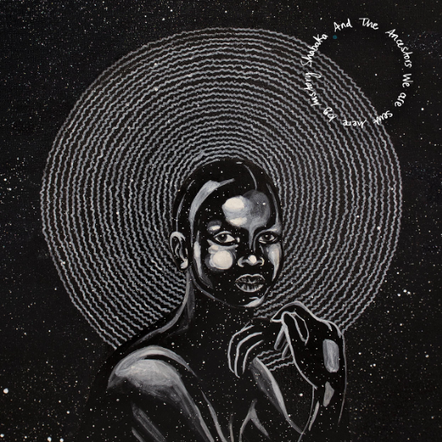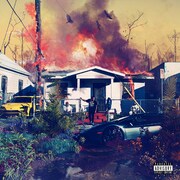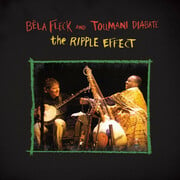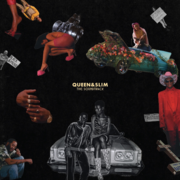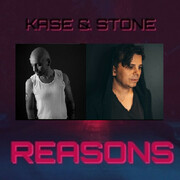New York, NY (Top40 Charts) On March 13, Shabaka & The Ancestors will make their Impulse! debut with the band's sophomore album We Are Sent Here By History. Their breakout 2016 album, Wisdom of Elders, established Shabaka & The Ancestors as a sudden force in spiritual jazz. But where that record warned of impending societal collapse, this one unfolds within it. Shabaka refers to the album as a "meditation on the fact of our coming extinction as a species. It is a reflection from the ruins, from the burning." On the lead single "Go My Heart, Go To Heaven," Siyabonga pays homage to his father's favorite church song. The word "hamba" (or "go") is repeated, and within the context of this track, it's "about the point where one gives in and wants out of this world," Siyabonga says. "But in times of darkness is a call to the light and the heart."
Shabaka & The Ancestors was formed in 2016; Shabaka had been flying to Johannesburg to play with trumpeter/bandleader Mandla Mlangeni, who connected him to a group of South African jazz musicians that Hutchings admired. After several sessions, their first album Wisdom of Elders was made. This follow-up record reunites the group, who recorded again in Johannesburg and Cape Town last year (2019). This album is more urgent, more unrelenting, darker and energetic and presents a major social commentary in the context of ancient traditions. Shabaka explains this is "what happens after that point when life as we know it can't continue."
We Are Sent Here By History mixes African and Afro-Caribbean traditions. The album takes the concept of the griot - the living archive of a historical narrative, the storyteller and contextualizer - and presents the album as the modern day griot. Therefore, a really important aspect to this is the accompanying text to this album: South African performance artist Siyabonga Mthembu chants and sings on this record and composed lyrics for the album. Shabaka then chose song titles from the lyrics and composed poems around each title, based on Siyabonga's lyrics. On the aptly titled "We Will Work (On Redefining Manhood)," Siyabonga sings a poem in Zulu that, when translated to English, shuns the archaic pillars of virility. From childhood, young boys are trained to suppress their emotions and suffer in silence. "This song sings from the point of the toxic masculine," Siyabonga says. "It repeats the sentences they tell to their boys—to not cry, to not grieve and to not hurt."
Conceptualized as an album-long sonic poem examining the present and future, the lyrics and poems are accessible now.
Lineup
Shabaka Hutchings - Tenor Sax and clarinet
Mthunzi Mvubu - Alto Sax
Siyabonga Mthembu - Vocals
Ariel Zamonsky -
Double bass
Gontse Makhene - Percussion
Tumi Mogorosi - Drums
Nduduzo Makhathini (Fender Rhodes), Thandi Ntuli (piano),Mandla Mlangeni (trumpet) on select tracks
Tracklist
They Who Must Die
You've Been Called
Go My Heart, Go To Heaven
Behold, The Deceiver
Run, The
Darkness Will Pass
The Coming Of The Strange Ones
Beasts Too Spoke of Suffering
We Will Work (On Redefining Manhood)
'Til The Freedom Comes Home
Finally, The Man Cried
Teach me How To Be Vulnerable
From Shabaka Hutchings:
"We Are Sent Here by History is a meditation on the fact of our coming extinction as a species. It is a reflection from the ruins, from the burning. a questioning of the steps to be taken in preparation for our transition individually and societally if the end is to be seen as anything but a tragic defeat. For those lives lost and cultures dismantled by centuries of western expansionism, capitalist thought and white supremist structural hegemony the end days have long been heralded as present with this world experienced as an embodiment of a living purgatory."















